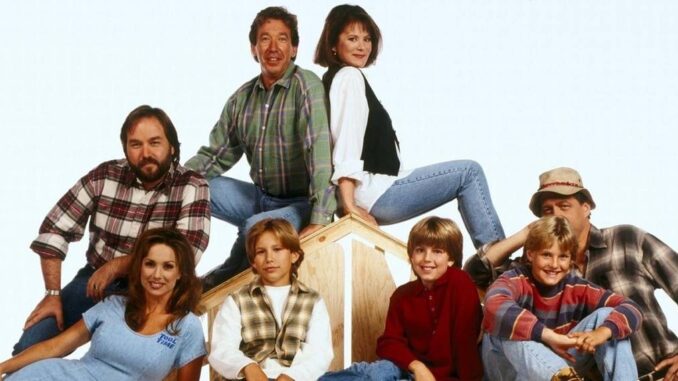
Home Improvement Wasn't Cancelled For the Reasons You Think: Beyond the Headlines and into the Tool Time of Reality
"Home Improvement," the 90s sitcom that cemented Tim Allen's star status and plastered the "more power!" catchphrase onto the cultural consciousness, was a television behemoth. For eight seasons, it reigned supreme, drawing in millions with its blend of family-friendly humor, DIY escapades, and the undeniable charisma of its cast. So why, at the peak of its popularity, did the show suddenly disappear from primetime? Most attribute it to Tim Allen’s unwillingness to take a pay cut, a narrative that paints him as a greedy celebrity prioritizing his wallet over the show’s longevity. While money certainly played a role, the true story of "Home Improvement's" demise is a far more nuanced tapestry woven with creative fatigue, contractual obligations, and the inherent struggle of keeping a long-running sitcom fresh.
The accepted narrative, often perpetuated by entertainment news outlets, centers around ABC offering Tim Allen a reduced salary for a ninth season. The story goes that Allen, already commanding a hefty fee, refused to budge, ultimately leading to the show's cancellation. This simplification ignores the complex web of negotiations involving not just Allen, but the entire cast and production team. Patricia Richardson, who portrayed Jill Taylor, was also hesitant to return, citing burnout and a desire to pursue other projects. Her decision, often minimized in the popular narrative, undoubtedly influenced the network’s decision. ABC wasn’t just losing their leading man; they were potentially losing the show’s emotional anchor, the voice of reason amidst Tim Taylor’s chaotic antics.
Beyond financial squabbles and individual desires, creative fatigue was a significant factor. Eight seasons is a long run for any sitcom, and the writers had undoubtedly exhausted many of the show's core themes. The dynamic between Tim and Jill, while charming, was beginning to feel repetitive. Randy, Brad, and Mark, once adorable children, were morphing into teenagers navigating the complexities of adolescence, a transition that often proves difficult to seamlessly integrate into a sitcom format. The writers faced the daunting task of constantly reinventing familiar storylines and characters to avoid stagnation. Maintaining the show's signature humor while staying fresh and relevant was becoming increasingly challenging.
Furthermore, "Home Improvement" was deeply intertwined with Allen's stand-up persona. His comedic style, rooted in masculine bravado and DIY blunders, was the show's foundation. But as Allen’s career evolved beyond the sitcom, his focus shifted. He yearned to explore more diverse roles, appearing in films like "Toy Story" and "Galaxy Quest" during the show’s run. These projects likely fueled a desire for creative exploration beyond the confines of "Home Improvement," suggesting a gradual distancing from the character that had defined him for so long.
The cancellation wasn’t a sudden implosion, but a confluence of factors slowly chipping away at the show’s foundation. While money was undoubtedly a contributing element, it was far from the sole reason. The creative team struggled to maintain the show's momentum, Patricia Richardson's commitment wavered, and Tim Allen’s ambitions extended beyond the confines of the Taylor household.
In retrospect, the cancellation of "Home Improvement" shouldn't be viewed as a tragedy fueled by greed, but rather as a natural conclusion to a successful run. The show bowed out gracefully, leaving behind a legacy of laughter and heartwarming family moments. The story serves as a reminder that even the most popular television shows are vulnerable to the relentless pressures of the entertainment industry, pressures that extend far beyond the superficial narratives often portrayed in the media. The true story of "Home Improvement's" demise is a cautionary tale about the challenges of longevity, the allure of new opportunities, and the enduring struggle to maintain creative vitality in the face of overwhelming success. Ultimately, the "more power!" that fueled Tim Taylor's world wasn't enough to conquer the complex realities of Hollywood. The show didn't just run out of gas; it ran its course.